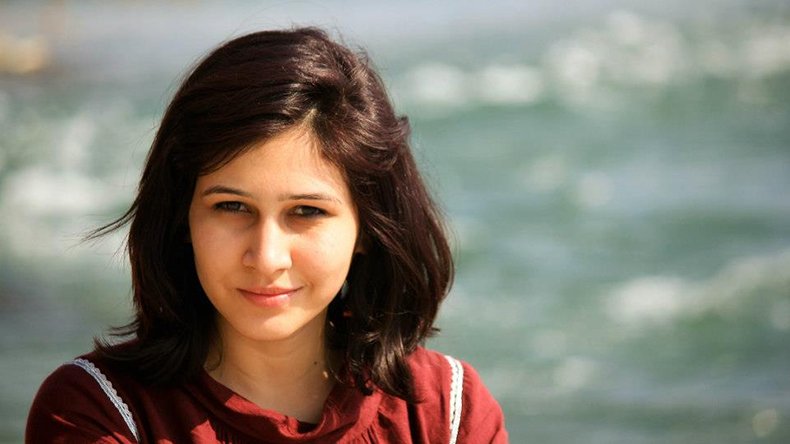Master in Urban Climate and Sustainability is a programme for all the professionals involved with urban issues of sustainability

The LAB University of Applied Sciences is a one and only university of applied sciences in the program, other members are universities. One of the students of programme on Master in Urban Climate and Sustainability (MUrcS), Marina Khan, believes that MUrCS has served its meaning as an ideal learning opportunity with a balanced combination of all the critical areas of urban climate and sustainability. Marina is originally from Pakistan and work as an architect. Before the Master’s programme she has been engaged in various architectural and urban regeneration projects in Karachi, Pakistan.
“During the work experience in my home city managing complex urban challenges, I often felt like as an architect there is a need for expertise beyond design in the areas of sciences, management, and planning. Moreover, being from the developing country it is an important consideration that the urbanization in Pakistan is unplanned and is being expediently affected by increasing climatic change. Hence, along with the infrastructural need, there is a necessity for an integrated approach to climate threats to improve the quality of life of urban dwellers by adapting sustainable solutions,” says Marina.
Marina has really enjoyed her time at LAB and Lahti where she has been living for almost 2 years. Lahti is a beautiful city with its nature and the people, she says. Also, the general Finnish lifestyle has been very calming. Marina's experience studying in LAB has been a great case to study for academic learning.
“For example, the projects related to industrial symbiosis (i.e., a collaboration of Lahti Energia and Päijät-Häme Waste Management, etc.) in the city are a live case study for students like myself. Also, the campus is very facilitating, in terms of technical support and the faculty is beyond helpful. The staff has been repeatedly organizing summer schools, excursions, and networking access to conferences and workshops, this enhanced the learning experience to another level altogether.”
The programme is a mix of academics, industry exposure, real-time case studies, and practical work experience and networking opportunities
Marina describes MUrCS as a customized programme for interdisciplinary urban sustainability professionals equipping students to navigate the management challenges associated with leading effective change within the socio, technical constraints of cities. She recommends the MUrCS programme for all the professionals who are involved in the urban issues of sustainability. So even if someone is not directly related to design or planning, the program is balanced, inclusive and a great opportunity for intradisciplinary learning.
“I would recommend this program to design, management, innovation and environment and engineering professionals who wish to explore urban sustainability and have an interest in climate change dynamics in cities. Moreover, apart from the basic compulsory courses, the electives offer a pathway for one’s own specialized focus and interests. However, this is an intensive master’s degree and does require fulltime attention. But during breaks and holidays, I highly encourage internships for MUrCS students for networking and local industry and institutional experience.”
Marina says that the programme is a mix of academics, industry exposure, real-time case studies, and practical work experience and networking opportunities. Master’s degree has been a theoretical deep dive into sustainability notions for her, but it was also well-knit in the practice procedures and execution methods.
“Now that I’m almost done with this master, I believe my expertise and aspirations lie in two areas, firstly, the decarbonization/net-zero transition of the built environment i.e., in buildings, energy and cities, and secondly, a balanced climate-sensitive urban policy-making and planning for developing countries. Therefore, I wish to be involved in a thinktank in a government setup or a global network so I can enhance the practical aspect of the learnings and expedite sustainability solutions. Perhaps in 5 years, I may even opt for a Ph.D. in the issues of developing cities and the sustainable transformation of the built environment.”
Marina did her thesis related on the effects of climate change in her home country. She felt that the urban climate situation in her city requires immediate attention as the current progress on scientific UHI studies is also nonexistent. She decided that is her responsibility to use this opportunity to initiate a pioneer study on the urban heat island (UHI) effect in the mega-city of Karachi. Also in the future and as an architect, Marina wish to earn building sustainability-related certifications, such as LEED AP to enhance her capacity in better technical expertise and decision-making.
Text: Elina Jokela
Master in Urban Climate and Sustainability (MUrCS)
The aim of the new Master of Urban Climate and Sustainability 1.5 (MUrCS1.5) is to produce high calibre graduates to manage climate resilience in cities to live within a 1.5oC warmer world. The approach of MUrCS1.5 will integrate three themes in a specific manner – science of nature-based solutions as the approach to mitigation, combined with circular economy as the driver for urban planning, and sustainability leadership as the management goal.